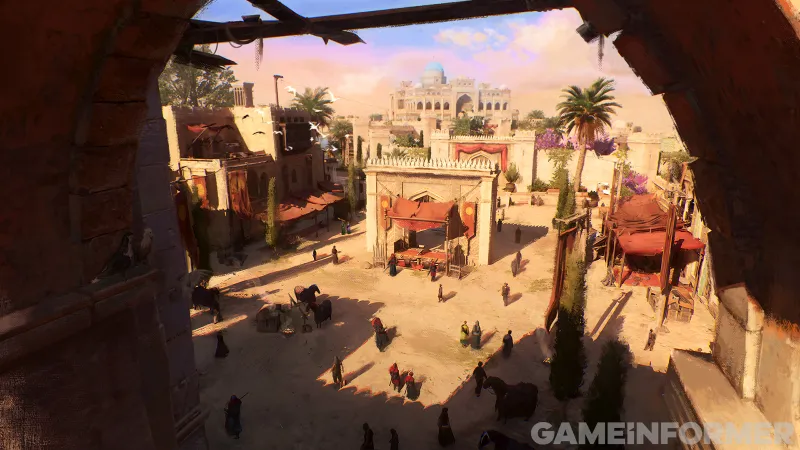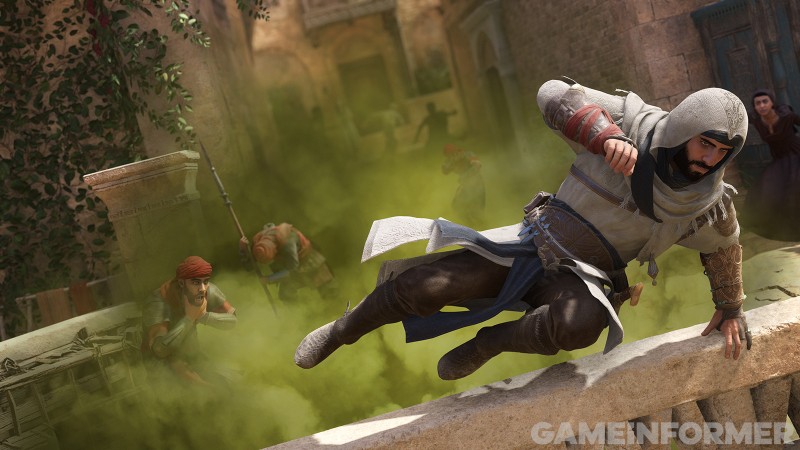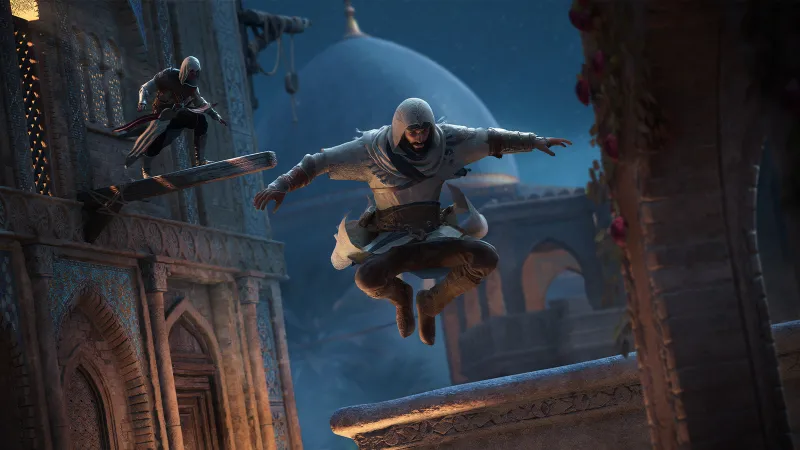[ad_1]
When Ubisoft revealed Assassin’s Creed Mirage last September, it announced that Basim Ibn Ishaq, the master assassin who brought Evor to the Hidden Ones order, was returning in 2020’s Assassin’s Creed Valhalla. This time, however, he is a playable hero. His journey in Mirage takes him from street thief to Hidden Ones Order initiate and finally to the master assassin we see in Valhalla.
Basem getting his own game marks the first time in franchise history that a character who has already appeared in a different Assassin’s Creed game will get his own main game as the protagonist. After playing Mirage for about two hours Game Informers The latest cover story, I’m excited to learn more about Bassim’s journey and experience his progression narratively and mechanically in full release this October. But I was also curious as to how developer Ubisoft decided to bring back Bordeaux Basim. It’s his backstory (or lack thereof when we meet Basim in Valhalla) and how it relates to the series’ first protagonist, Altair Ibn-La’Ahad, whose Assassin’s Creed events take place in 1191, roughly 300 years later in the Mirage. Important points.
“Bassim was a very interesting character,” says Stephen Bowden, creative director at Ubisoft’s Bordeaux office. “He was mysterious. And it is, in fact, really perfect to tell (the story of his youth) because it creates a parallel with Altair. It’s not really the same story, but when you play (Assassin’s Creed), you live the life of an Assassin who has to rank up to prove he’s worthy of the Creed, and it’s the same for Basim.
Bowden explains that this parallel in the two assassins’ journeys was important to the team, with Mirage serving as a spiritual homage to the first Assassin’s Creed and Basim to Altair. With Basim coming from Baghdad, he says the team grew more excited about their journey because the city was the cultural and technological center of the region during the 9th century Golden Age.

World and quest director Simon Arsenault says he was particularly excited about the Assassin fantasy genre that Basim allowed the team to take on. He notes that Cassandra embodies the Greek demigod fantasy, Ivor the Viking fantasy and Bayek the Magi, and the Ancient Egyptian fantasy. With Bassim, it’s a return to the classic Assassin’s Creed fantasy: a guy learning to kill really well, stealthily.
“(In open world RPGs), it was less about credo,” Arsenault tells me. “It’s always been there, but it was less about that. When you’re playing an Assassin of the Hidden Ones — which is what we do with Basim — you want to bring that closer to home for every player who plays him because we know how he ends up. We’re playing Basim’s story and he’s a master in Valhalla. ends up being an assassin; we couldn’t have you be a rogue gunslinger mercenary, for example – it wouldn’t work for him (because) there would be gaps in his narrative.
Instead, Arsenault says the team focused on giving players control and freedom over how Basim plays, rather than how players progress through the narrative. You can choose how to approach quests and contracts, what clothes he wears and what perks he gets from them, what tools and dropouts you use, and more. “Instead of giving you freedom in how he evolves, we bring you more freedom in how you play,” he adds.

Arsenault says that familiarity didn’t factor in much when designing quests with Basim already familiar to roleplaying players. “The only thing that changes is that you try to avoid having an intention contrary to what Basim does; basically, you try to remove it, but freedom is always in your subtle actions.
“(Basim’s) never going to say, ‘I’m going to murder everybody, because that’s not Basim,'” he says, pointing to players having the ability to do that in the open-world RPG Assassin’s Creed games. “That’s the difference. We try to bring more choices in actions rather than results. The result is that he takes down his target stealthily or not, with good or bad success. But he’s going to take down his target and that’s good for the undercover and his progress in becoming a master assassin (…).”
Artistic director Jean-Luc Sala says it was tricky but exciting to design Bassim in a new light for Mirage.

“We know what’s happening in Valhalla with Bassim, so it’s a different Bassim,” he says. “There’s a turning point in his life, Valhalla brings in Basim, but before that, we want to make him a full-fledged assassin – a lovable character you can relate to, (who) you can really understand and fear that he’s going to be that Basim from now on.
My time there didn’t involve anything in the way of Mirage’s narrative, so I can’t speak to him much, though I did enjoy his turns in Valhalla. With a new voice actor – this time, Lee Madjoub – and a new era of history and the city to experience as Basim, I’m excited for the full release in October. I’m mechanically sold on Assassin in Basim, and I’m looking forward to seeing if Ubisoft can add Bordeaux Basim to my list of favorite series heroes.
For more, be sure to check out Game Informer’s exclusive Assassin’s Creed Mirage coverage hub by clicking the banner below.
[ad_2]